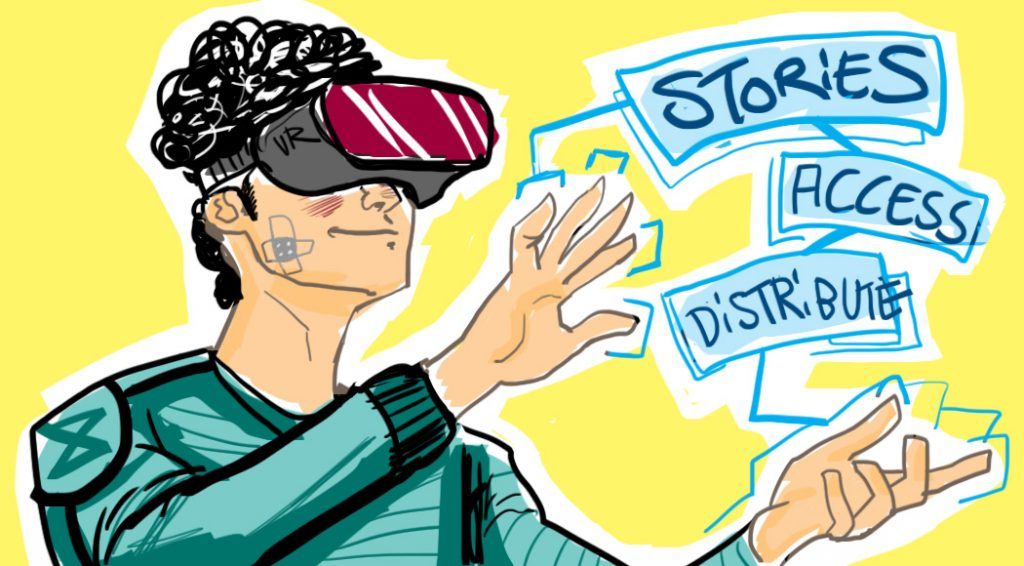By Mars Dorian, {grow} Contributing Columnist
I dragged my body home from a recent tech event in Berlin, my mind pondering the many trends buzzing around the online world. After days of reflection and obsessive note-taking, I’ve condensed the knowledge for content creators like pure rose essence.
Here are the three lessons content creators should keep in mind when bracing for the future:
Why accessing content is better than owning it
Streaming content or renting services (i.e. experiencing them), has become the new standard thanks to companies like Netflix, Basecamp, and Spotify.
You don’t own a single Netflix series, any Basecamp service or songs on Spotify.
You pay for the privilege to access them.
This trend springs from a variety of factors:
- People want more choice in what they consume, when, and where to consume it.
- They also rarely spend their lifetime at the same company. Most friends I know switch jobs or do project-based work thanks to the gig economy. They move around cities, sometimes even countries, especially within the European Union.
- And since rent is blowing up in cities all over the world, moving around has become a necessity. Thanks to technology, your modern office can be carried in your pocket, making you more location independent than ever.
In short, our lifestyle has become more mobile and flexible, making streaming/renting a necessity.
It has also shifted the focus from material possession to experiences, making traveling, visiting concerts or any form of live events more valuable and popular.
Lesson: Focus your content and product creations on selling access and experiences.
2) The rise of story-selling
The importance of telling stories in the business has become a hollow phrase, but you have to understand the significance behind it.
People are making more money from storytelling about their expertise than actually practicing their expertise.
The late Anthony Bourdain was a struggling kitchen chef before making a fortune telling stories via books, TV shows, movies and even comics. He turned his expertise in cooking into a global story-selling brand.
But you don’t have to be a star to tap into the trend.
My mother is a full-time artist who managed to story-sell her expertise in painting. She gives premium workshops under the hot sun of Tuscany, Italy, and teaches drawing and color theory at Berlin art universities. She also holds private gallery happenings at her studio where she mixes entertainment with art selling.
So let me repeat. Telling stories about your expertise can be more financially rewarding than performing your expertise:
Screenwriting guru Robert McKee makes more money teaching about screenwriting than actually writing screenplays.
Berlin-based comic artists I know make more money teaching comic art at colleges and giving sold-out readings than actually selling comics
Lesson: whether it’s through e-courses, workshops, shows, live readings, performances, speaking gigs, or media like books, TV shows, games, and comics–there are countless ways to story-sell your expertise. What are you waiting for?
3) Public distribution will rival the private middleman
Back in the day, distributing your book or shows required a traditional publisher or media network. They were middlemen deciding whose work was presented to the public.
You had to get picked.
In this day, tech companies like Amazon and YouTube have cut out the traditional middleman and allow creators like you and me to release their content to the world. But during this revolution, these corporations have become the new middleman.
You don’t need permission from Amazon and Youtube to offer your content to the world. But you must follow their guidelines or risk punishment.
YouTube is restricting monetization on videos it deems problematic. Amazon can ban author accounts without explanation.
But even this corporate wall between you, the content creator, and the audience will fall away soon. With technologies like Blockchain or its successor, you will be able to distribute and sell your digital content without permission or even adhering to guidelines.
Traditional publisher (permission) > private distributor (no permission, but guidelines) > public distributor (no permission, no guidelines)
Lesson: in the future, publishing and selling any form of content, even controversial one, will be possible to anyone using the decentralized public networks. The real challenge will be getting discovered by the people willing to pay for your content.
Conclusion
Accessing services and content instead of owning them, story-selling your expertise and using public distributors will matter for us content creators. The more you learn about these trends, the better you’ll be prepared for the future.
What future trend you think will be important to content creators?

Original illustration by the author.



